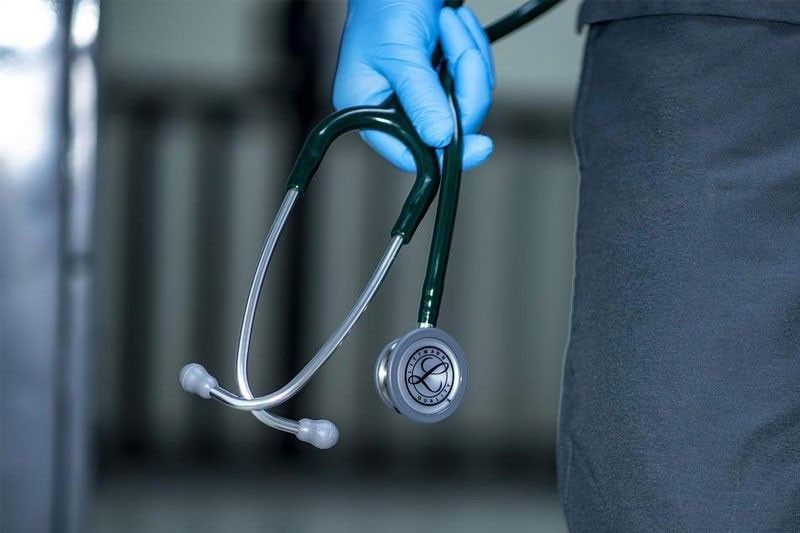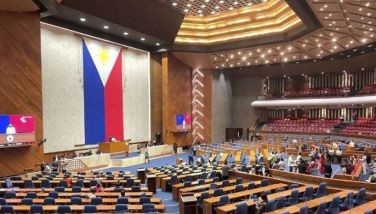Doctors, hospitals back plan to lift emergency state

MANILA, Philippines — Since the Philippines is on the “right track” in handling the COVID pandemic, doctors and a group of hospitals are supporting the plan of Health Secretary Ted Herbosa to recommend to President Marcos the lifting of the state of public health emergency.
Philippine College of Physicians president Dr. Rontgene Solante and Private Hospitals Association of the Philippines Inc. president Dr. Jose Rene de Grano both agreed with the proposal of Herbosa to have Proclamation No. 922 lifted by Marcos amid decreasing number of COVID cases nationwide.
The proclamation issued by former president Rodrigo Duterte will remain in effect unless withdrawn by Marcos.
“Since the World Health Organization has lifted the public health emergency of international concern, the Philippines should also end the country’s COVID state,” Solante said in an interview with The STAR yesterday.
“We are on the right track in dealing with the pandemic. Based on data from the Department of Health (DOH), COVID cases are on downward trend. The health care utilization and mortality rates are low,” he added.
De Grano also expressed support for the DOH’s plan to lift the state of public health emergency.
“Actually, it can be done. There are less COVID patients over the past three weeks, and they are not severe or critical,” he said.
Solante and De Grano, however, said the public should continue to be cautious against the virus.
“We also need to put in place measures that will classify COVID as a long-term illness just like other infectious diseases, such as dengue fever or tuberculosis, to continue to prevent the spread of the virus,” Solante said.
The infectious diseases specialist underscored the need to strengthen the country’s health care facilities and continue with the COVID-19 surveillance.
“We should make COVID vaccination part of our regular immunization program and access to antivirals should be continuously provided,” Solante pointed out.
De Grano said the implementation of minimum health protocols should continue.
They said the unpaid benefits of health care workers should not be waived even after the lifting of the state of public health emergency.
Herbosa wants the state of public health emergency lifted, but with the alert level system retained.
Bivalent gets FDA nod
Following the granting of a certificate of production registration for Pfizer’s bivalent vaccine, the Food and Drug Administration (FDA) is expected to issue a CPR for Moderna’s vaccine.
Solante, a member of the vaccine experts panel, said he expects Moderna to be the second brand of bivalent vaccines that will be available for commercial use in the country.
Moderna applied for CPR in the first quarter of the year, he said.
“The approval timeline (for a CPR) is three to six months,” Solante said.
The FDA issues CPR to pharmaceutical firms for the manufacturing, distribution and sale of drugs and medical devices.
The agency granted CPR for Pfizer’s bivalent booster for people aged 12 and above.
Meanwhile, the latest genome sequencing of COVID samples showed that majority of the cases recorded by the DOH were classified under the Omicron XBB subvariant and sublineages.
Based on the COVID surveillance report, the DOH said 63 out of the 73 samples sequenced from June 19 to 23 were classified as XBB subvariant. These include two XBB.1.5 cases, 27 XBB.1.16, 12 XBB.1.9.1, two XBB.1.9.2, 18 XBB.2.3 and 2 cases of other XBB sublineages.
The DOH said the results of the latest genome sequencing conducted by the University of the Philippines-Philippine Genome Center were consistent with the trend observed since last month.
“From May onwards, XBB and its sublineages were the most detected variant in the country,” the DOH said.
The report also showed that aside from the XBB subvariant, nine samples have been tagged as BA.2.3.20.
The prevalence of the XBB subvariant and sublineages was observed as the DOH has started inoculating health care workers and those with comorbidities with bivalent vaccines.
The Philippines received more than 390,000 doses of bivalent vaccine from the Lithuanian government on June 3.
- Latest
- Trending



























